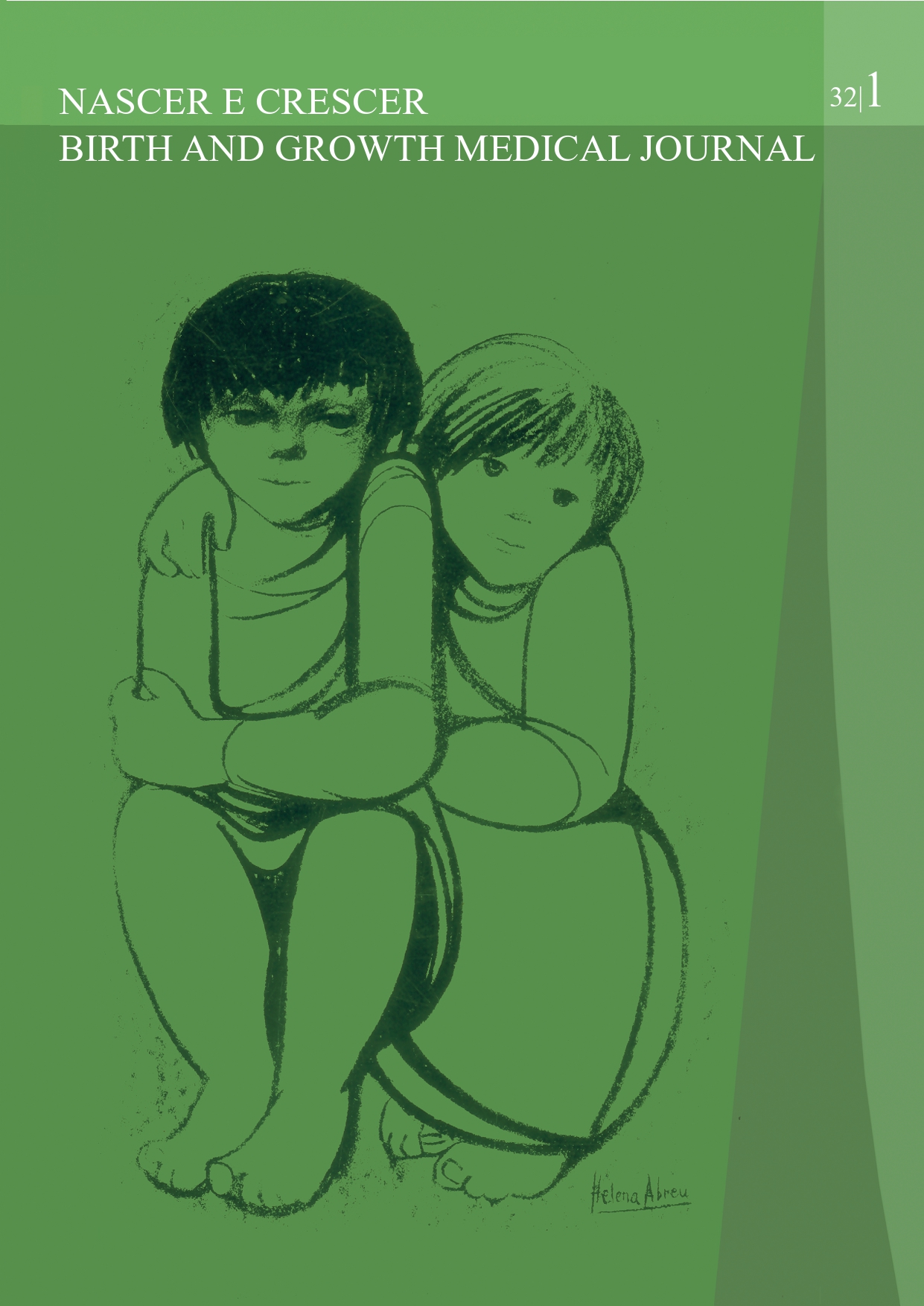The impact of Potocki-Lupski syndrome on sibling relationships
DOI:
https://doi.org/10.25753/BirthGrowthMJ.v32.i1.25110Keywords:
behavior problem, healthy sibling, intellectual disability, Potocki-Lupski syndromeAbstract
Introduction: Potocki-Lupski syndrome is a condition characterized by cognitive, behavioral, and medical manifestations caused by 17p11.2 duplication encompassing the RAI1 gene. Due to the significance that sibling relations acquire throughout life, changes in the health and functioning of one sibling affect the others.
Case report: A 14-year-old boy, healthy sibling of a girl with Potocki-Lupski syndrome, attended the Child and Adolescent Psychiatry consultation due to maternal concerns about the impact of the sister’s disease on his well-being. On observation, despite looking relatively well adapted to the sister‘s condition, the boy showed sadness and shame regarding some of the sister‘s behaviors, particularly when occurring in public places, and great guilt towards them.
Discussion/conclusion: The impact of the intellectual disability of a child on healthy siblings comprises negative and positive experiences. Therefore, it should be assessed in light of a network of influences and idiosyncrasies characteristic of family relationships.
Downloads
References
Praticó AD, Falsaperla R, Rizzo R, Ruggieri M, Verotti A, Pavone, P. A new patient with Potocki-Lupski Syndrome: A Literature Review. J Pediatric Genet. 2018 Mar; 7(1): 29–34.
Potocki L, Chen KS, Park SS, Osterholm DE, Withers MA, Kimonis V, et al. Molecular mechanism for duplication 17p11.2- the homologous recombination reciprocal of the Smith-Magenis microdeletion. Nat Genet. 2000 Jan;24(1):84-7.
Kaplan K, Mccool C, Lupski JR, Glaze D, Potcki L. Objective measures of sleep disturbances in children with Potocki–Lupski. 2Am J Med Genet A. 2019 Oct;179(10):1982-1986.
Boone PM, Reiter RJ, Glaze DG, Tan DX, Lupski JR, Potocki L. Abnormal circadian rhythm of melatonin in Smith-Magenis syndrome patients with RAI1 point mutations. Am J Med Gen. 2011 Aug;155A(8):2024-7.
Neira-Fresneda J, Potocki L. Neurodevelopmental disorders associated with abnormal gene dosage: Smith–Magenis and Potocki–Lupski syndromes. Journal of Pediatric Genetics. 2015 Sep;4(3):159-67.
Soler-Alfonso C, Motil KJ, Turk CL, Robbins-Furman P, Friedman EM, Zhang F, et al. Potocki–Lupski syndrome: A microduplication syndrome associated with oropharyngeal dysphagia and failure to thrive. The Journal of Pediatrics. 2011 Apr;158(4):655-659.e2.
Magoulas PL, Liu P, Gelowani V, Soler-Alfonso C, Kivuva EC, Lupski, JR, et al. Inherited dup(17)(p11.2p11.2): Expanding the phenotype of the Potocki–Lupski syndrome. Am J Med Genet A. 2014 Feb;164A(2):500-4.
Shuntermann P. The sibling experience: Growing up with a child who has pervasive developmental disorder or mental retardation. Harv Rev Psychiatry May-Jun 2007;15(3):93-108.
Glendinning C. Unshared Care: Parents and Their Disabled Children. Londres: Routledge & Kegan Paul. 1983; p381-382.
Neece CL, Blacher J, Baker BL. Impact on Siblings of children with intellectual disability: The role of Child Behavior Problems. Am J Intellect Dev Disabil 2010 Jul;115(4):291-306.
Seligman M. Adaptation of children to a chronically ill or mentally handicapped sibling. CMAJ. 1987 Jun 15;136(12):1249-52.
Breslau N, Weitzman M, Messenger K. Psychologic functioning of siblings of disabled children. Pediatrics. 1981 Mar;67(3):344-53.
Poznanski E. Psychiatric dificulties in siblings of handicapped children. Clin Pediatr (Phila). 1969 Apr;8(4):232-4.
Levy-Wasse N, Katz S. The Relationship between Attachment Style, Birth Order and Adjustment in Children who grow up with a Sibling with Mental Retardation. J Marriage Fam. 2012 Oct 1; 74(5): 913–930.
Messa AA, Fiamenghi Jr GA. O impacto da deficiência nos irmãos: histórias de vida. Ciência & Saúde Coletiva. 2010; 15(2): 529-538.
Downloads
Published
How to Cite
Issue
Section
License
Copyright (c) 2023 Marta Antunes, Mariana Liz, Zulmira Correia

This work is licensed under a Creative Commons Attribution-NonCommercial 4.0 International License.
Copyright and Authors' Rights
All articles published in Nascer e Crescer - Birth and Growth Medical Journal are Open Access and comply with the requirements of funding agencies or academic institutions. For use by third parties, Nascer e Crescer - Birth and Growth Medical Journal adheres to the terms of the Creative Commons License "Attribution - Non-Commercial Use (CC-BY-NC)".
It is the author's responsibility to obtain permission to reproduce figures, tables, etc. from other publications.
Authors must submit a Conflict of Interest statement and an Authorship Form with the submission of the article. An e-mail will be sent to the corresponding author confirming receipt of the manuscript.
Authors are permitted to make their articles available in repositories at their home institutions, provided that they always indicate where the articles were published and adhere to the terms of the Creative Commons license.


